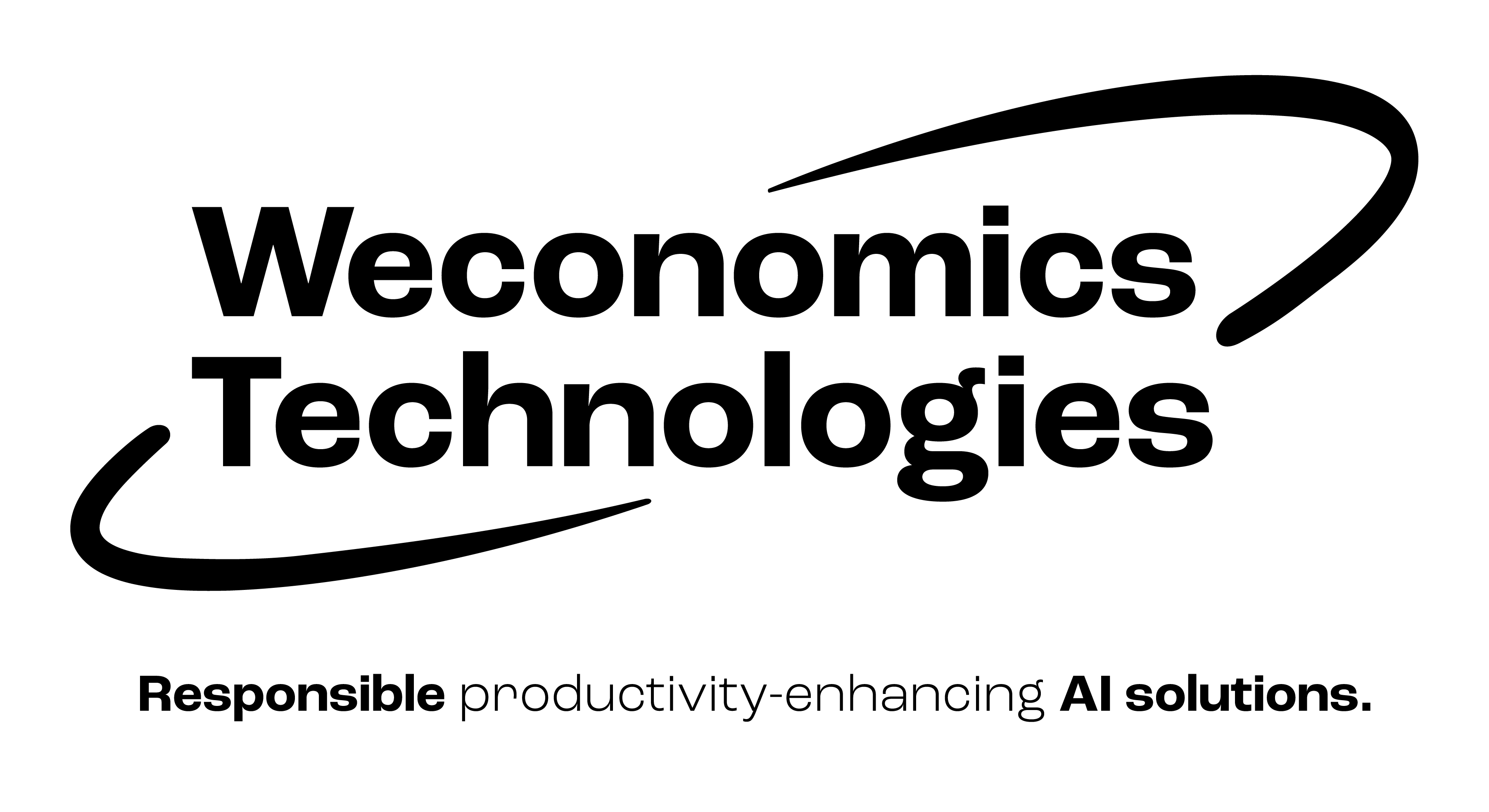The question “Who will be the next ASML?” is frequently asked by investors and industry leaders. We believe we have a compelling answer. Weconomics Technologies is nestled in the vibrant heart of Brainport Eindhoven at the High Tech Campus. We specialize in Data Supply Chain Management (DSCM) and developing Productivity Enhancing Responsible AI (PERA) solutions. With the digital assembly line we focus on working with reliable, protected data, emphasizing good governance and decentralization. Our goal is to enhance trust, reduce risks and costs, combat misinformation, and minimize dependence on corporations and governments.
Weconomics Technologies @The High Tech Campus Eindhoven
The High Tech Campus Eindhoven (HTC, also called the smartest square kilometer in Europe) is a unique ecosystem with a wide variety of technologies and applications. Startups and companies at HTC shares a common goal: to develop new technologies and applications that help to solve social problems and challenges, and to successfully bring them to the market. This combination of technology, social challenges, investors and businesses is central to the many collaborations on the Campus.
This region is also home to ASML, the manufacturer of the most complicated machine in the world. Similarly, Weconomics Technologies facilitates complex transformations with generative AI as part of the the digital assembly line at its core. The digital assembly line, much like an ASML machine, is made up of many high-tech components that are intelligently integrated.
All three entities—HTC, ASML, and Weconomics Technologies—feature organizational structures that prioritize smart collaboration within ecosystems and the integration of various innovations to achieve a significant social impact.
We are a comprehensive network committed to navigating these turbulent times successfully. We offer a broad portfolio of services to foster growth and collaboration.
Problem
On average, each person sends 40 emails and receives 121 emails daily. We spend at least 30% of our valuable time asking questions, verifying claims, or extracting information from data. Before we can effectively replace human interaction with generative AI to enhance productivity, we must trust the data that generative AI utilizes. Historically, we have learned that technology alone does not automatically increase our productivity. Despite billions in IT-investments, productivity growth is declining and fluctuating around zero in offices. The key question is how can we solve this problem, this productivity paradox and and leverage the opportunities that generative AI offers?
Approach
Weconomics Technologies assists organizations with a unique, data-driven approach that leverages the opportunities presented by generative AI. Our starting point is centered on people and data, rather than companies or IT systems. We focus on aligning disruptive data technologies with innovative business and operational models. Our goal is to facilitate the planned abandonment of dominant logic — those ingrained habits, routines, and legacy systems that hold organizations back. We help phase out outdated and localized IT systems and develop ecosystems while implementing AI agents as part of the digital assembly line. Just as the physical assembly line transformed factories, the digital assembly line will revolutionize office environments. It’s essential to prepare for this shift.
Solutions
Weconomics develops enterprise generative AI solutions using sensitive local datasets as part of the digital assembly line. We assist organizations in creating visions and strategies, developing use cases and concepts, and building prototypes and Minimum Viable Products (MVPs) or Minimum Viable Ecosystems (MVEs). This support is crucial not only for successful AI implementations but also for sustainability reporting within value chains and other initiatives. We utilize advanced data technologies to enhance privacy, decentralization, and democracy. Additionally, by leveraging AI and the digital assembly line, we improve productivity in offices, which can generate surplus resources for sustainability efforts.
We focus on:
- the organization of data supply and demand with the lowest friction;
- the development of generative AI solutions on sensitive local datasets;
- your connection to a digital assembly line and data utility;
- challenges in the field of trust, productivity, privacy, decentralization, and governance.
Your benefits
Alongside our partners, we assist organizations in transforming into more durable, digital, decentralized, and humane entities. We raise awareness and implement the concept of data-driven organizing and incorporating generative AI as part of the digital assembly line. Our goals for transformation programs are to:
- reduce operational office costs and information lead times by at least 30%
- double productivity
Want to get acquainted?
Want to get to know us better? Start with our free webinar (organized in collaboration with Weconomics Foundation, a federated Community of Practice of which Weconomics Technologies is a member).
Contact us for more information.
tags: home
